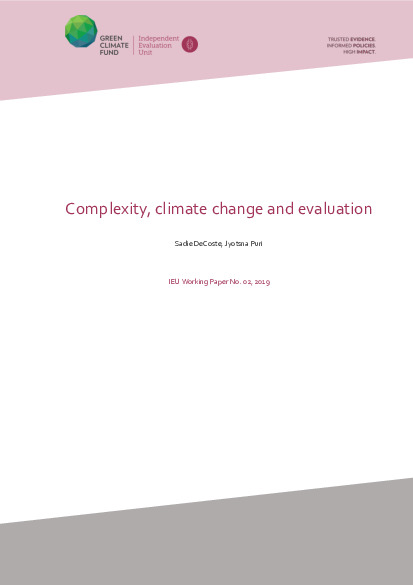Complexity, climate change and evaluation
As governments and multilateral institutions establish projects and programmes to mitigate and adapt to climate change, a question arises as to how we can determine their effectiveness. Impact evaluations have emerged in the social sciences as a prominent tool to determine the causal effect of policies and programmes in fields like health and economic development. However, climate change programmes tend to exhibit high levels of complexity, which may challenge their ability to be measured and thus evaluated.
This paper examines the overall question of complexity and uses a selection of climate change programme approved by the Green Climate Fund Board to understand how complexity may be analyzed based on a set of criteria. By exploring perspectives from complexity sciences, this paper examines how effects of climate change projects and programmes may be understood. Viewing a climate change programme as a complex system – wherein the whole is greater than the sum of its parts – may help us devise new methods or combine existing ones to evaluate it effectively.
- Introduction
- Review of complexity approaches
- Complexity and evaluation: What has been done
- Creating a complexity - aware scoring system for climate change programmes
- Applying the scorecard to GCF Investments
- Findings and a discussion
- References
- Annexes
